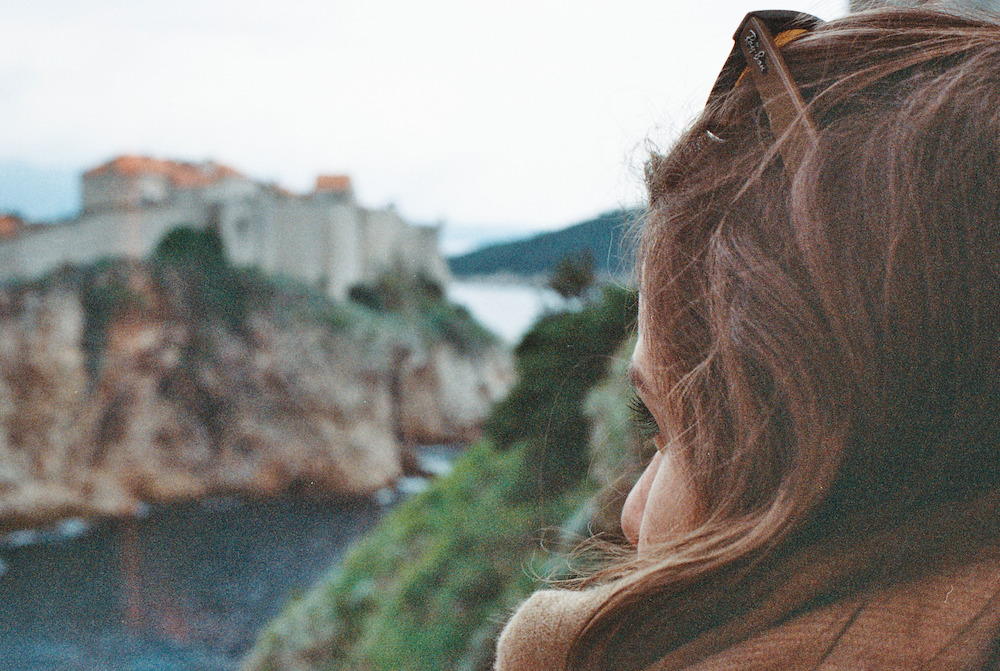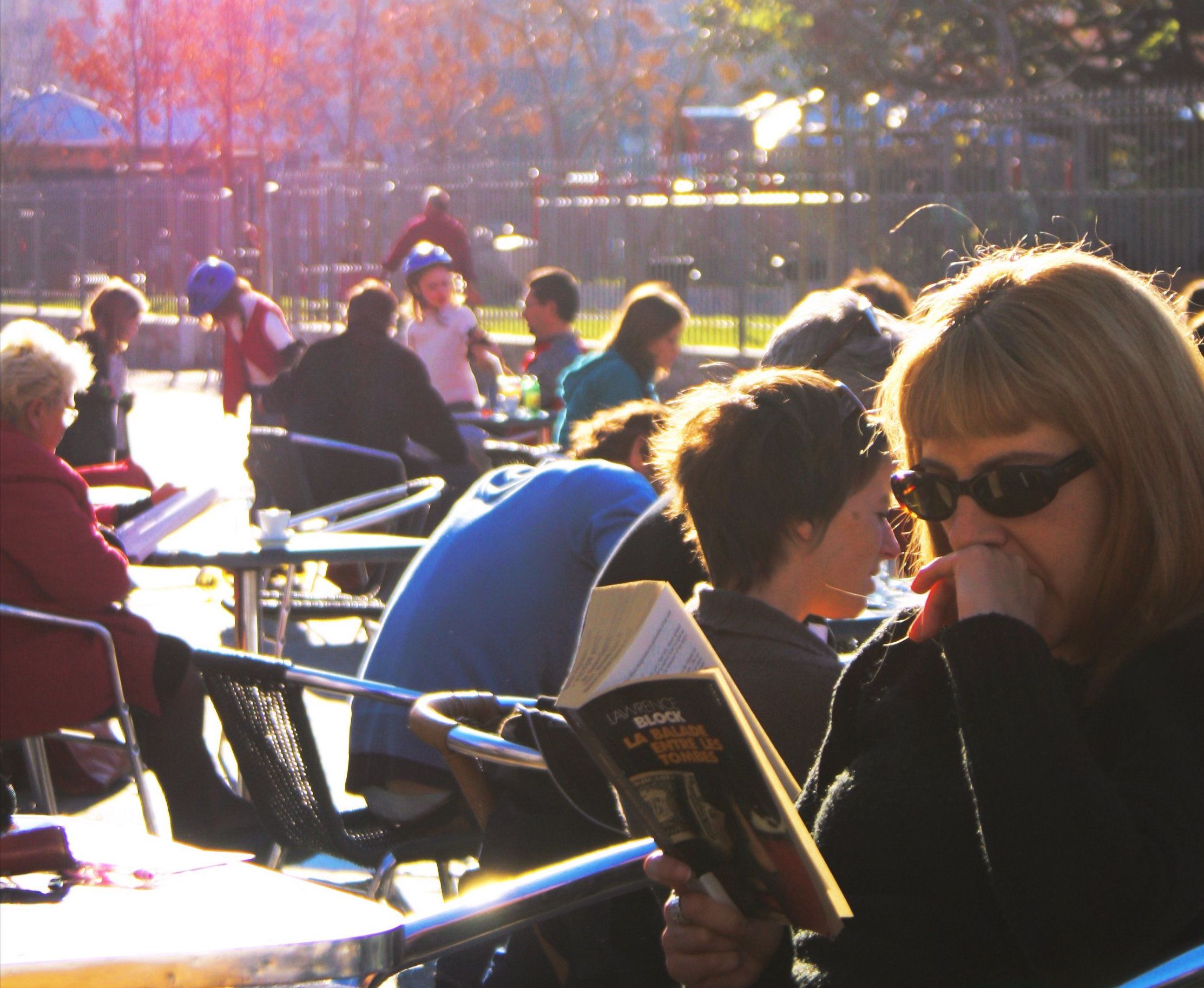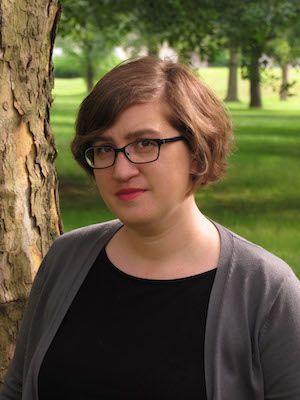Essay by Hillary Moses Mohaupt
How Language—and Music—Capture the Past

I have never really had an ear for music. I struggled through a brief stint of childhood piano lessons, and my time in the percussion section of middle school band was cut short by my utter lack of rhythm. The same goes for any kind of learning. Tell me how to do something, and I can’t follow the directions. But show me—or better yet, let me write it down in longhand—and I’ll get the hang of it in no time.
Which is why I expected, when I signed up for a French class at our local Alliance Française in early 2019, that I’d have little trouble with the written placement test but would probably bomb the oral exam. Imagine my surprise when the opposite happened.
Sixteen years before I sat down to take that exam, I woke early and showered to the soundtrack of a French radio host in Marseille. He was trying to motivate me and half a million other residents of a city on the coast of the Mediterranean to get moving on mornings before the sun rose. I carried the DJ’s voice in my head as my host sister and I walked to school, the streets sleek with winter rain. When we met up with her classmates and mine in the courtyard of our lycée, I was still trying to make sense of what he’d said.
In the Midwestern city where I grew up, we didn’t have francophone radio, of course. When I started studying French in middle school, my French teacher drilling us with conjugations chanted like dirges, I turned to the only francophone music I could find in northern Illinois: the early Canadian albums of Céline Dion. I memorized many of those songs by repetition—“Dans un Autre Monde” (“In Another World”), “Vole” (“Fly”), “Je Sais Pas” (“I Don’t Know”)—first in my parents’ basement at the age of twelve, then in my host mother’s living room at seventeen.
Remembering is a kind of time travel, a way to be in two times at once, here in the bright, legible present and there in the dark, unreadable past. I still carry so many francophone voices in my head—the DJ, Céline Dion, the teachers at the lycée, my host family—and they’re loudest whenever something in the present jolts me back in time.
Once, I got off a train in New Jersey and on the platform passed a man lighting up a cigarette. I was transported from that Amtrak station to the Marseille schoolyard, where gangly French teenagers lingered in tight groups during class breaks, cigarettes dangling from hands or lips.
It’s February 2003. The United States has not yet declared war on Iraq; the anti-America protests haven’t yet started in the street outside our school, and my classmates haven’t yet started needling me to justify a government I’m not old enough to have voted for. For now, they are smoking, and I’m squinting at them through a hazy fog of understanding, and they are asking me about my tan Birkenstock clogs—in style in Illinois, but totally foreign here among black boots and black stiletto heels. Tes pantoufles, someone calls my clogs. Your slippers.
Not long ago, I slid a Céline Dion CD into the player in my car. I might have been driving down Route 1 in suburban New Jersey, but my mind was in Marseille again.
I’m sprawled across my host mother’s living-room floor, the wooden tiles warming against my back as I lie there, listening to this same album on repeat, until not only the words have wriggled their way into the folds of my brain, but also each chord and key change. Je vais les routes et je vais les frontières. Je sens, j'écoute, et j'apprends, je vois.
In the car fifteen years later, the words of “Destin” ("Fate") wriggled their way back: I travel the roads to the borders. I smell, I hear, I learn, I see.
Light glints off these memories, the moments when I was learning I might not always want to be a Midwestern American girl who wore what looked like slippers to school and who didn’t understand her own country’s politics: The musical accent of one French teacher, as she tears into my classmates because I’ve scored higher on a history exam than many of them. My host mother’s tsking as she rubs aloe into my sun-soaked limbs after a Sunday at the seaside. My host sister sitting next to me with some album liner notes, helping me translate “Destin,” the one Céline Dion song we both know.
For years, I spoke French nearly every day, thanks to the routine of the American school system, that study-abroad program in Marseille, then another later in Toulouse. I minored in French in college and did a master’s thesis in French history. For years, I peppered my English with French vocabulary, words that, for the most part, never settled entirely in my hippocampus because I sang them, off key and perhaps off beat, with Céline Dion.
And for years, I marked time by how long I’d been studying French, until I stopped. I left school, I moved to the East Coast, I got a job outside Philadelphia, and I didn’t have time to travel. I didn’t use French every day, I didn’t need it, and so I lost it.

Still, during those French-free years, I asked a tattoo-artist friend to inscribe my ankle with a souvenir—m̂. It’s an abbreviation I learned from a classmate’s notes in an early-morning philosophy class in Marseille. The professor spit when he spoke and never slowed down because an American girl was seated in the front row. Frantically trying both to listen and write, I copied the notes of a girl who had agreed to help me.
Over the course of my time in France, she became a good friend and the chief intermediary between the world I knew and the one I was coming to understand. Her lowercase m̂ with a circumflex over it was the shorthand for même (“even” or the “same”), part of the common phrase quand même, which when uttered seriously means “nevertheless.” But when it's uttered with a characteristically southern French air of exasperation, quand même means “what the hell do you think you’re doing?”
That m̂ remains tattooed on my ankle, the letter itself a permanent reminder that wherever I walk, I am here in the present and somewhere in my past, making my way as a teenager in Marseille, making peace with the person I was then and continue to be.
This year, after I took the written placement test for classes at the Alliance Française in Philadelphia, the director called to administer the oral placement exam. I balked. “J'ai perdu tout mon français,” I said to the francophone on the telephone. I’ve lost all my French.
I heard the sharp edge of my American accent and was transported to an open-air market in Paris, where a vendor asked if I was from Québec. I’d picked up the Marseillais accent qui chante (the “singing accent”) by speaking French in Marseille, but my ear for French also came from singing along with a Québecoise.
And then I’d let it go—or so I thought. With the written questions on the placement exam, I’d had to sound out French vocabulary words one by one, singing to myself a whole playlist of Céline Dion songs. I more or less transcribed words I still knew how to speak but no longer knew how to write, wresting them from my memory through song.
Et quand même: On the other end of the phone, the director of the Alliance Française tsked just as my host mother once had. “Non, pas tout,” she said—no, not all—and I heard the rhythm of her accent reverberate with the music of my past.
Art Information
- Photo of woman overlooking coast © Archibald; Creative Commons license.
- “Balade Entre les Tombes” © Marin; Creative Commons license (image has been cropped).
 Hillary Moses Mohaupt is a Mid-Atlantic writer and editor with roots firmly planted in the Midwest. Her essays, interviews, and book reviews have appeared in Brevity, Barrelhouse, Split Lip, Lady Science, and elsewhere.
Hillary Moses Mohaupt is a Mid-Atlantic writer and editor with roots firmly planted in the Midwest. Her essays, interviews, and book reviews have appeared in Brevity, Barrelhouse, Split Lip, Lady Science, and elsewhere.
Follow her on Twitter and Instagram @_greyseasky_.
